URBANREC
Propuestas para mejorar la sostenibilidad de los envases alimentarios
In this context, the European Commission has published the European Plastics Strategy, according to which all packaging must be reusable, recyclable or compostable by 2030. In line with this last type of solutions, during the last decade great efforts have been focused on developing biodegradable/compostable and/or biobased packaging materials for applications such as films, bottles, trays, etc. Among all the available material, PLA is broadly used due to its affordable price and properties, which make it suitable for almost any application and have consolidated it as one of the most promising renewable polymers for the packaging industry. However, these properties are far from those of conventional polymers, reason why research is being carried out to improve them, by introducing nanoreinforcements on biopolymers, for example.
ITENE has worked during the last 15 years on different European and internal projects in which biodegradable packaging has been developed. For each application tailored solutions are approached in order to optimize final properties. Additionally, as food safety assessment is a must in these projects, ITENE has experience preparing Dossier for the EFSA (European Food Safety Authority) and FDA (Food and Drug Administration).
Keyworks: Packaging, PLA nanocomposites, Biopolymers, Biobased materials, Biodegradable film, biodegradable bottle, barrier properties, mechanical properties, food shelf life, organomodified clays, microfibrillated cellulose, sustainable materials, waste valorization.
» Author: María José Jiménez Pardo, María Jordá Beneyto, Natalia Ortuño Mansilla
» Reference: Propuestas para mejorar la sostenibilidad de los envases alimentarios ISSN: 0034 8708 Datos Fuente: 2019,117 (746)
» More Information

This project has received funding from the European Union's Horizon 2020 research and innovation program under grant agreement Nº 690103




URBANREC Guidelines by URBANREC Consortium is licensed under a Creative Commons Reconocimiento-NonComercial-NoDerivatives 4.0 Internacional License.
Puede hallar permisos más allá de los concedidos con esta licencia en www.aimplas.net
